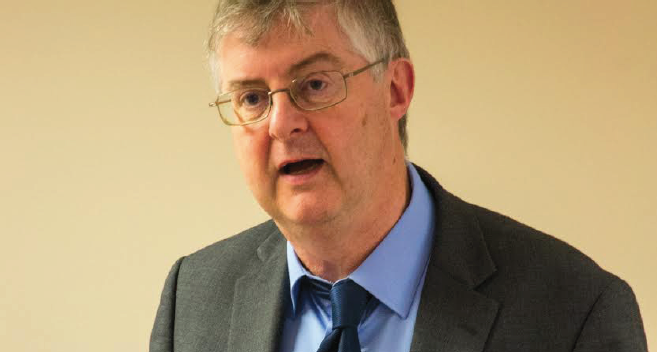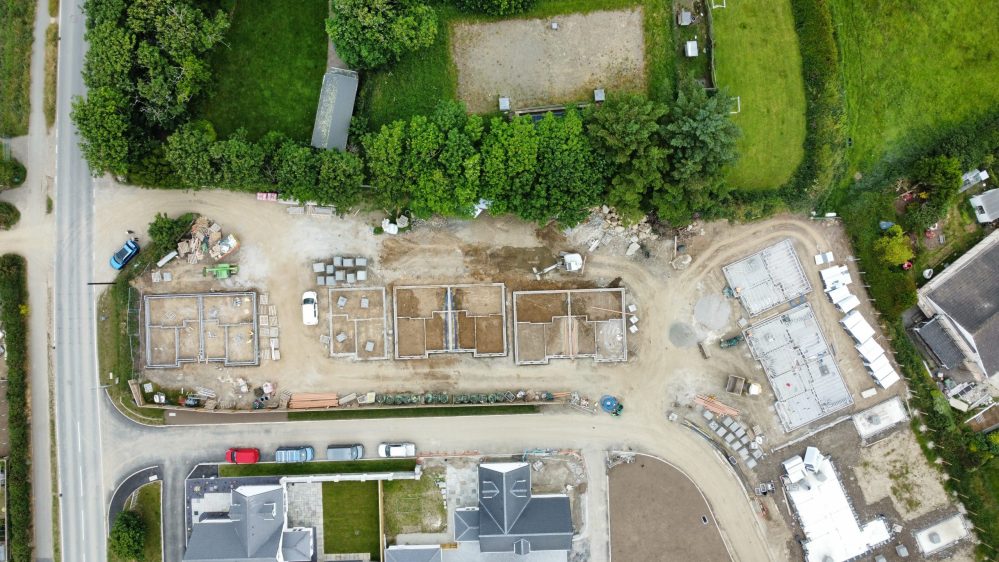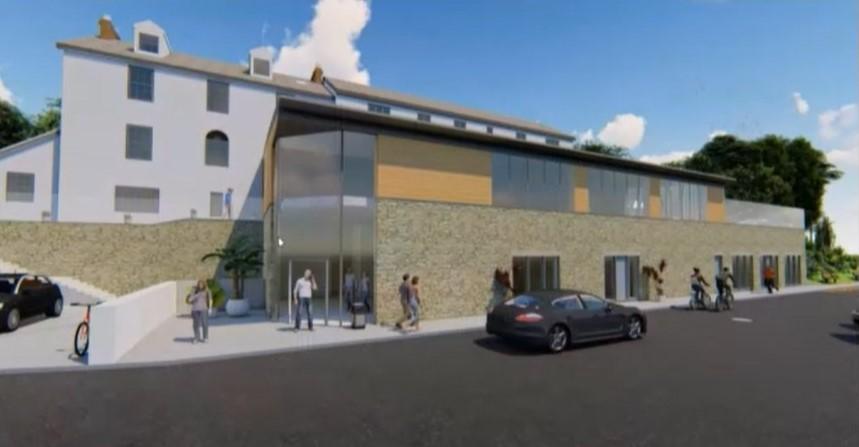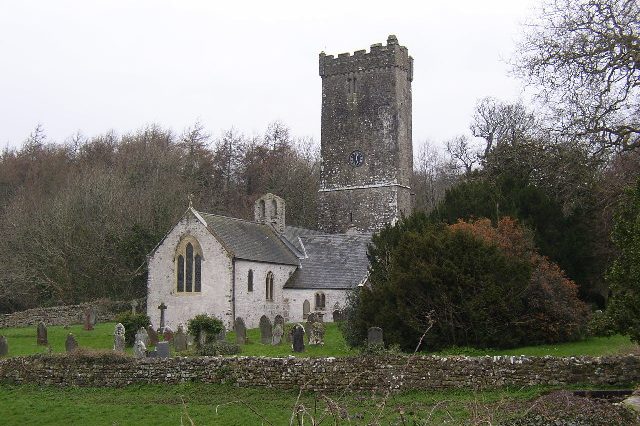Politics
Reforms challenge local democracy

 A WHITE PAPER setting out how councils will deliver some of their services together will be unveiled this week by Local Government Secretary Mark Drakeford.
A WHITE PAPER setting out how councils will deliver some of their services together will be unveiled this week by Local Government Secretary Mark Drakeford.
The White Paper, which is out for consultation until the beginning of April, is the result of months of discussions between the Welsh Government, local authorities and others on how to strengthen council services in the face of future challenges. It seeks views on proposals for mandatory regional working to deliver a range of services, address workforce issues, and implement electoral reform, including allowing voting at 16. It also calls on members of the public to become active participants in local democracy and in the design and delivery of services.
Amongst the proposals are a mandatory economic development footprint that would also cover certain planning functions and transport.
Councils would have some flexibility over what footprint they use to share responsibilities for other mandated services including education improvement, social services, additional learning needs, public protection and promotion of the Welsh language.
Councillors would make up the membership of new, enhanced joint committees which would oversee these services and make decisions on behalf of their respective councils. Funding arrangements would work on the existing practice of pooled budgets.
The local government workforce is an essential part of these proposals and the Welsh Government will consider, through the Workforce Partnership Council, how to support the transition over to the new arrangements, using statutory guidance where necessary.
Councils would still have the option of merging under the new plans and, where there is local agreement for this, the Welsh Government would work with them to make it a reality.
The White Paper also calls for a different and more equal partnership between people and the public services they use. This would see the development of a new set of principles recognising people as the best experts in how to manage their own lives and putting in place small interventions earlier to resolve issues before they escalate further.
The proposals strike a new balance between clear and unavoidable objectives for local government with flexibility for councils to determine how those shared objectives are best delivered locally. Thus the White Paper proposals provide councils with powers to choose between operating a Cabinet or Committee system and to decide how the activities of councillors are best reported to the electorate. Similarly, views are invited on enabling local authorities to adopt either ‘first past the post’ or ‘single transferable vote’ election systems. Following passage of the Wales Bill, further conversation will take place on a wider set of measures to reform electoral arrangements in Wales to improve both voter registration and turn out at elections.
In line with the new proposals, the Cabinet Secretary also announced that he would be considering how the wider local government finance system could be reformed – ensuring a fairer and more sustainable system to support local authorities in the future.
Setting out the proposals for consultation, the Local Government Secretary said: “This White Paper is not about change for change’s sake. Our councils are working against a backdrop of extraordinary austerity and some services are facing a great deal of pressure. Local government reform is essential if we’re to make these services stronger and more resilient to cope with the demands of the future.
“The new regional arrangements will bring councils together to work more effectively in the interests of people and their communities.
“We want to see a new relationship between councils and their communities where public services support people to live independent lives and intervene only when necessary and only for as long as is required.
“We also want a new relationship between the Welsh Government and our councils; one that is based on mutual respect for the important, and different, roles we each play.
“Underpinning all of these new arrangements will be effective scrutiny and accountability, where councillors act as the champion, advocate and guide for people who elect them.
“I want to thank local authority leaders and others for their help in forming a serious and credible set of proposals. I look forward to working alongside them further following the local government elections in May.”
Economic development footprints would be based on the WLGA regions of South-East Wales, North Wales and Central and South-West Wales. The shape of these regions fits with the economic development areas already in place; namely the Cardiff Capital and Swansea Bay city regions, the North Wales Economic Ambition Board and the Growing Mid Wales Partnership.
Crucially, however, there is no election to the quangos the Welsh Government has decided will direct local economies, with members of each being appointed by a variety of public and third sector bodies. Quite how those arrangements will advance and protect local democracy and accountability is a significant question, especially when considering the catalogue of disasters unleashed by similar arrangements in the past.
In particular, there are concerns that key local authority functions, such as oversight of major local planning projects, will end up being determined – either directly or indirectly – by unelected regional boards made up of place-men and women, failed local government bureaucrats, and appointees made up of what – in Welsh political circles – amounts to ‘the usual suspects’.
The consultation will close on April 11 and is available to view on the Welsh Government’s website: consultations.gov.wales.
News
Community asked for views on allocation of new St Davids homes

THE FIRST phase of Pembrokeshire County Council’s Glasfryn housing development in St Davids is progressing well with the second phase also underway.
The development being built by GRD Homes Ltd, began in November 2023, with a first phase completion date of Winter 2024 looking hopeful, ahead of the scheduled plans.
The first phase consists of seven properties, including a mixture of one and two bedroom bungalows
As completion draws closer the properties will be advertised via Pembrokeshire Choice Homes.
Ahead of this, the Council’s housing team will be holding community engagement on the 13th August 2024 at the Ty’r Pererin Centres, Quickwell Hill, St Davids, SA62 6PD, 5pm-7pm.
This will be a chance for officers to liaise with the local community about the allocation process for these properties.
Glasfryn’s second phase is well underway, with the initial groundwork already completed. This phase includes a further 11 two bedroom bungalows, with a completion date in late 2025.
These bungalows will meet the latest Welsh Government’s Development Quality Requirement, and will be energy efficient, built to EPC A specification and include solar panels to help tenants with running costs.
The Glasfryn development is funded in partnership with Welsh Government.
Cabinet Member for Housing Cllr Michelle Bateman said: “We are really keen to work with the community on a local lettings policy for these new properties, as we have done for our developments in other parts of the County.”
If you have any queries please email the Customer Liaison Team on [email protected], phone them on 01437 764551, or visit Housing’s Facebook page.
Business
Legal call to stop £6m expansion of holiday park still ongoing

A LEGAL request to overturn a Pembrokeshire County Council-granted approval for a £6m expansion of a south Pembrokeshire holiday park is still ongoing despite a previous announcement it had been turned down, county planners heard.
Back in February, Pembrokeshire planners were informed a legal challenge to a November 2023-granted application for works at Heritage Park, Pleasant Valley/Stepaside had been launched.
The holiday park scheme had previously been backed twice by county planners after a ‘minded to approve’ cooling-off period was invoked as it was against repeated officer recommendations to refuse.
The controversial scheme by Heritage Leisure Development (Wales) Ltd includes the installation of 48 bases for holiday lodges, a spa facility at a former pub, holiday apartments, a café and cycle hire, equestrian stables, a manège and associated office, and associated works.
It is said the scheme, next to the historic remains of the 19th century Stepaside ironworks and colliery, will create 44 jobs.
Officer grounds for refusal, based on the Local Development Plan, included the site being outside a settlement area.
Along with 245 objections to the current scheme, Stepaside & Pleasant Valley Residents’ Group (SPVRG Ltd) – formed to object to an earlier 2019 application which was later withdrawn – also raised a 38-page objection, with a long list of concerns.
A failed legal challenge to try and overturn a council decision to approve three separate planning applications at Heritage Park was launched in 2021 by SPVRG Ltd, which failed in early 2022; the council awarded costs of £10,000 despite external legal fees paid totalled £34,000 plus VAT.
At the June meeting of Pembrokeshire County Council’s planning committee members were told the recent judicial review call by SPVRG Ltd had been refused by the high court, the grounds put forward “not considered to be reasonably arguable”.
Committee chair Cllr Simon Hancock said a council request for SPVRG Ltd to pay costs incurred by the county council in defending the claim had now been submitted.
Following that, at the July planning meeting, in his chair’s announcement, Dr Hancock gave a clarification on the position.
“I can advise that whilst the application for judicial review was refused by the High Court Judge on May 31, 2024, the appellants have challenged this decision.
“This matter is listed for a renewal hearing, and accordingly the legal challenge is still in progress; I’m hoping that’s a clarification from the announcements I made back in June.”
Responding to the clarification, Trish Cormack of SPVRG Ltd pointed out it was not “an appeal,” adding: “Firstly, we are ‘requesting the decision to be reconsidered at a hearing,’ which is a bit less dramatic than ‘challenging the decision’.
“Secondly, the claim remains open for seven days after the decision on the papers in expectance of you requesting the hearing, and the form 86B comes attached to the decision with the case number already filled in for you. This is just part of the process for a judicial review. If the Judge really thought there were no merits to the case, he was free to issue a ‘without merits refusal’.
“That would have ended the claim there and then. The only way to resurrect it would have been to take it to the appeal court. But he didn’t.
“Thirdly, the announcement makes it sound like our ‘challenge’ had happened after their previous announcement, whereas in fact we only had seven days from May 31 in which to make the request, so they knew the moment we did (June 7) because we had to simultaneously email it to the court, PCC and the developer’s agent. So, they knew full well that there would be a renewal hearing.”
Farming
Farm building scheme near Lawrenny given go-ahead by planners

AN APPLICATION for a storage building at a south Pembrokeshire farm, made by a family member of an officer on Pembrokeshire County Council’s planning service, has been given the go-ahead by the authority’s planning committee.
In an application recommended for approval at the July 23 meeting of the authority’s planning committee, Laura Elliot sought permission for the erection of an agricultural storage building at Tedion Farm, a dairy farm near Lawrenny.
The application had been brought to committee, rather than being delegated to planning officers, due to the family connection.
The farm, near to the Pembrokeshire coast National Park border, comprises 270 milking cows and dairy heifer replacements kept on the farm comprising land over 138 hectares. The farm is mainly down to grass and the cows are paddock grazed in order to utilise grass efficiency.
No objections had been received from local community council Martletwy.
A report for members said: “The application seeks consent for the erection of agricultural storage building. The erection of an agricultural building will be used to store stay, hay and farm machinery.
“The building would be located within the existing farm complex, to the north-east of the site, adjacent to the main farm dwelling. The building will measure 18 metres in length by 13.6 metres in width, with a pitched roof height of 5.71 metres.”
Approval was moved by Cllr Alistair Cameron, seconded by Cllr Brian Hall.
-

 Education5 days ago
Education5 days agoMilford Tesco worker achieves Oxford dream and lands top legal job
-

 Crime4 days ago
Crime4 days agoHaverfordwest man admits having nearly 1000 child and animal images
-

 Crime4 days ago
Crime4 days agoYouth set to appear in court over serious sexual offences
-

 Crime4 days ago
Crime4 days agoPolice investigating after man injured during altercation in cemetery
-

 Education4 days ago
Education4 days agoPupils delight in ice cream treat from Pembrokeshire’s number one van
-

 Crime4 days ago
Crime4 days agoTown centre ‘stinking of skunk’ as police strip cannabis farm
-

 Crime3 days ago
Crime3 days agoFag-butt police court summonses spark debate in Pembrokeshire
-

 News6 days ago
News6 days agoProposal to give firefighters a council tax discount to go to Cabinet






























